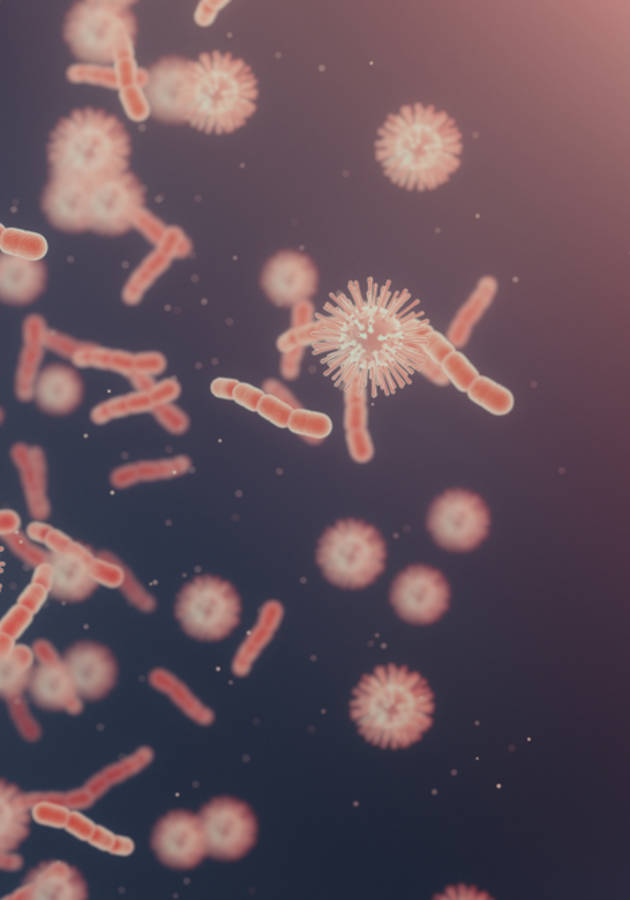Gabor Maté’s primary goal in writing ‘’When the Body Says No’’ was reviving the knowledge people acquired centuries ago, but, unfortunately, forgot in the modern age - that the human mind and body are inseparable. He uses this idea as a starting point to investigate the correlation between stress, particularly the hidden one that emerges in childhood, and illnesses such as cancer, multi sclerosis, and many more. Although he presents reasonably enough scientific evidence to support his theory, the stories of his patients form the heart of this book. Get ready to hear them!
Why did Mary’s body say no?
When he thinks of his years-long patient Mary, Maté’s heart always warms. Mary was a gentle, kind woman who laughed easily, although there was ‘’a touch of self-deprecation,’’ in her smile, as Maté writes. Apart from warm feelings, the memory of this woman also fills Maté with sorrow. When a wound from a sewing needle puncture on her fingertip did not heal for months, gangrene caused by Raynaud’s phenomenon set in, leaving Mary in such pain that she begged for an amputation. Raynaud’s occurs when small arteries supplying the fingers narrow, depriving the tissues of oxygen. In Mary’s case, it was a sign of something far worse - an autoimmune disease called scleroderma that causes inflammation of skin and other body areas, such as the heart and lung tissues.
The common denominator of all autoimmune illnesses, which include rheumatoid arthritis, ulcerative colitis, systemic lupus erythematosus (SLE), and many other conditions, such as diabetes and multiple sclerosis, is the damage to almost any part of the body caused by the immune system that basically turns against it. So, what causes this, in Maté’s words, ‘’civil war inside the body’’? Medical practice has a narrow view of the causes, tying them to toxins or genetic predisposition. According to Maté, what doctors should consider is the patient's psychological state before the onset of the disease or how it influenced its course and the outcome. When Maté talked to Mary about her childhood experiences, he found out she was abused, abandoned, and taken from one foster home to another. Mary also often had to protect her siblings from their drunken foster parents. ‘’She was trapped in the role forced on her as a child,’’ comments Maté, ‘’unaware that she herself had the right to be taken care of, to be listened to, to be thought worthy of attention.’’ In adulthood, Mary continued to compulsively take responsibility for the needs of others - her husband, and children, while neglecting the needs of her own. So, was scleroderma her body’s revolt against her inability to place herself above others? ‘’When we have been prevented from learning how to say no,” Maté writes, “our bodies may end up saying it for us.’’
Why emotional repression can damage our health
During the seven years of medical coordination of the Palliative Care Unit at Vancouver Hospital, Maté saw many patients with chronic illnesses whose emotional histories resembled Mary’s. Of course, some of them were of different personalities and had different life circumstances - however, all of them, like Mary, had never learned to say no. In other words, ‘’the underlying emotional repression was an ever-present factor.’’
The idea that there is a connection between people’s emotional coping styles and chronic conditions is probably anathema to most physicians. In general, medical practice looks at the organs in our bodies as isolated entities and treats the patient’s symptoms as they present themselves. However, what they should take into account is that the mind and our emotions profoundly interact with the body’s nervous system and that both build a link with our immune system. In fact, there is a field of medicine called psychoneuroimmunology which is no less than a science of the interaction between psychological processes and the nervous and immune systems of the human body.
So, how may stress lead to illness? Stress emerges as a complex cascade of physical and biochemical responses to powerful emotional stimuli. As electrical, chemical, and hormonal discharges of the human nervous system, emotions influence - and are influenced by - the functioning of major organs, many circulating biological substances that help govern the body’s physical states, as well as the integrity of our immune system defenses. If we repress emotions, like Mary did, the body drops its defenses against illnesses. As Maté writes, ‘’Repression—dissociating emotions from awareness and relegating them to the unconscious realm—disorganizes and confuses our physiological defenses so that in some people these defenses go awry, becoming the destroyers of health rather than its protectors.’’
Rather than blaming the sufferer for adopting unhealthy emotional coping style, Maté wants to point out that we have the ability to respond with awareness to life circumstances. ‘’None of us are to be blamed if we succumb to illness and death,’’ he writes. ‘’Any one of us might succumb at any time, but the more we can learn about ourselves, the less prone we are to become passive victims.’’
Stress and MS
The idea that psychological stress increases the risk of multi-sclerosis emerged long ago, in 1868, when French neurologist Jean-Martin Charcot gave a full clinical description of the illness. Patients, he said in a lecture, connect ‘’long continued grief or vexation’’ with the onset of symptoms. For the purpose of writing his book, Maté interviewed nine people with MS. All of them experienced extreme stress before they were diagnosed. One of them was Barbara, whose symptoms of MS appeared shortly after inviting a sociopathic man she had worked with at the correctional facility into her home to give him a fresh start. For only two weeks of his stay, the client caused havoc and disruption in her home and marriage. The other one was Natalie, whose son was in a drug rehabilitation facility and whose husband suffered a malignant bowel tumor when the symptoms of MS first appeared.
The published research about the correlation between multi-sclerosis and emotional stress is consistent with the evidence Maté collected from his interviews with patients. A study conducted in 1958 found that nearly 90% of cases had gone through traumatic life events before the first symptoms. Another study from 1969 showed that 85% of MS patients experienced the emergence of symptoms in the wake of recent highly stressful events. In particular, medical observers have identified several possible factors, such as excessive emotional involvement with a parent, a lack of psychological independence, an overwhelming need for love and affection, and the inability to feel or express anger, in the natural development of the disease. ‘’The fundamental problem is not the external stress, such as the life events quoted in the studies, but an environmentally conditioned helplessness that permits neither of the normal responses of fight or flight,’’ Maté notes. As a result, internal stress becomes repressed, and eventually one experiences having unmet needs normal, not stressful.
Negative, rather than positive thinking
You have probably noticed how we often use war metaphors when talking about cancer. The Vancouver oncologist Karen Gelmon does not think suggesting that cancer is a hostile force of some sort is helpful. ‘’It’s not a battle,’’ she says, ‘’it’s a push-pull phenomenon of finding balance and harmony, of kneading the conflicting forces all into one dough.” The disease is disharmony - an expression of internal disharmony, to be more precise. The potential for health resides in all of us, as does the potential for illness. Although researching isolated causes such as microbes and genes may be helpful, we should consider a broader perspective to know the diseases more. ‘’A search outside where the light shines will not yield us the key to health,’’ writes Maté. ‘’We have to look inside, where it is dark and murky.’’
Abandoning our attachment to what is known as ‘’positive thinking’’ is the first step to retracing our way to harmony, hence health. In fact, Maté advocates for a new definition of positive thinking which begins not by avoiding to consider the parts of reality that strike us as negative, but by including all its aspects. Genuine positive thinking, he claims, is ‘’guided by the confidence that we can trust ourselves to face the full truth, whatever that full truth may turn out to be.’’
So, negative thinking is not a pessimistic view but a willingness to consider what is out of balance and what our bodies are saying no to. It includes our confrontation with anxiety and the courage to ask questions, such as: Do I live according to my own truths or to fulfill someone else’s expectations? How much are my beliefs created by the need to please my parents? ‘’Without these questions, the stresses responsible for our lack of balance will remain hidden,’’ notes Maté.
Seven A’s of healing
When we gain the courage to permit negative thinking to ‘’inform our understanding, without allowing it to define our approach to the future,’’ we get to one of the seven A’s that are, according to Maté, crucial for our healing - acceptance. Other A’s are awareness, anger, autonomy, attachment, assertion, and affirmation.
- Acceptance. Apart from a willingness to accept and recognize how things are, acceptance also encompasses compassionate curiosity about the self, which simply means ‘’looking at ourselves with the same non-judgmental acceptance we would wish to accord anyone else who suffered and who needed help.’’
- Awareness. Developing awareness means paying constant attention to our internal states and learning to recognize physiological, emotional, and behavioral signs of stress, such as pounding of the heart, sweating, frequent urination, headaches, backaches, emotional tension or overalertness, unusual impulsivity or irritability, and a tendency to overreact.
- Anger. Since it increases psychological stress on the organism, the anger repression is a key risk factor for disease. But, in what ways can we express our anger by avoiding harmful outbursts at others? The healthy expression of anger means, first of all, contemplation about what triggered it. Second, it means displaying it through words and deeds, without acting it out through uncontrolled rage but giving ourselves control over it.
- Autonomy. Maté says that the immune confusion that leads to disease reflects a failure to distinguish self from non-self. In other words, when their boundaries are blurred, people suffer, and therefore, establishing or reclaiming the boundaries is an essential step to one's health.
- Attachment. We can define attachment as our connection to the world through which we learn to stay autonomous, open, self-nurturing and experience anger or repress it. Healing requires seeking connections that bring emotional support that, as studies find, reduces the risk of illness.
- Assertion. People often think they need to act to somehow justify their existence and avoid feelings of emptiness or frightened void. Assertion discards this notion - it is a ‘’positive valuation of ourselves independent of our history, personality, abilities or the world’s perceptions of us.’’ It is simply the declaration that ‘’we are and that we are who we are.’’
- Affirmation. To affirm means to make a positive statement, to move forward to something of value. According to Maté, honoring two basic values keeps our bodies in harmony. The first one is the creative self that expresses itself through writing, art, music, cooking, and gardening, to name a few. The second one is our connection with the spiritual self that can manifest through practicing religion, meditation, or, for instance, communing with nature.
Final Notes
The combination of ancient wisdom, scientific discoveries and stories of Mate’s patients make ‘’When the Body Says No’’ a disturbing, touching and insightful read, particularly valuable nowadays when more and more people report feeling stressed. It is definitely a must-read for health professionals and anyone who wants to become an active builder and protector of their health.
12min Tip
Whenever you experience pain or notice any disruption in the normal functioning, ask yourself whether your body wants to tell you something.





























